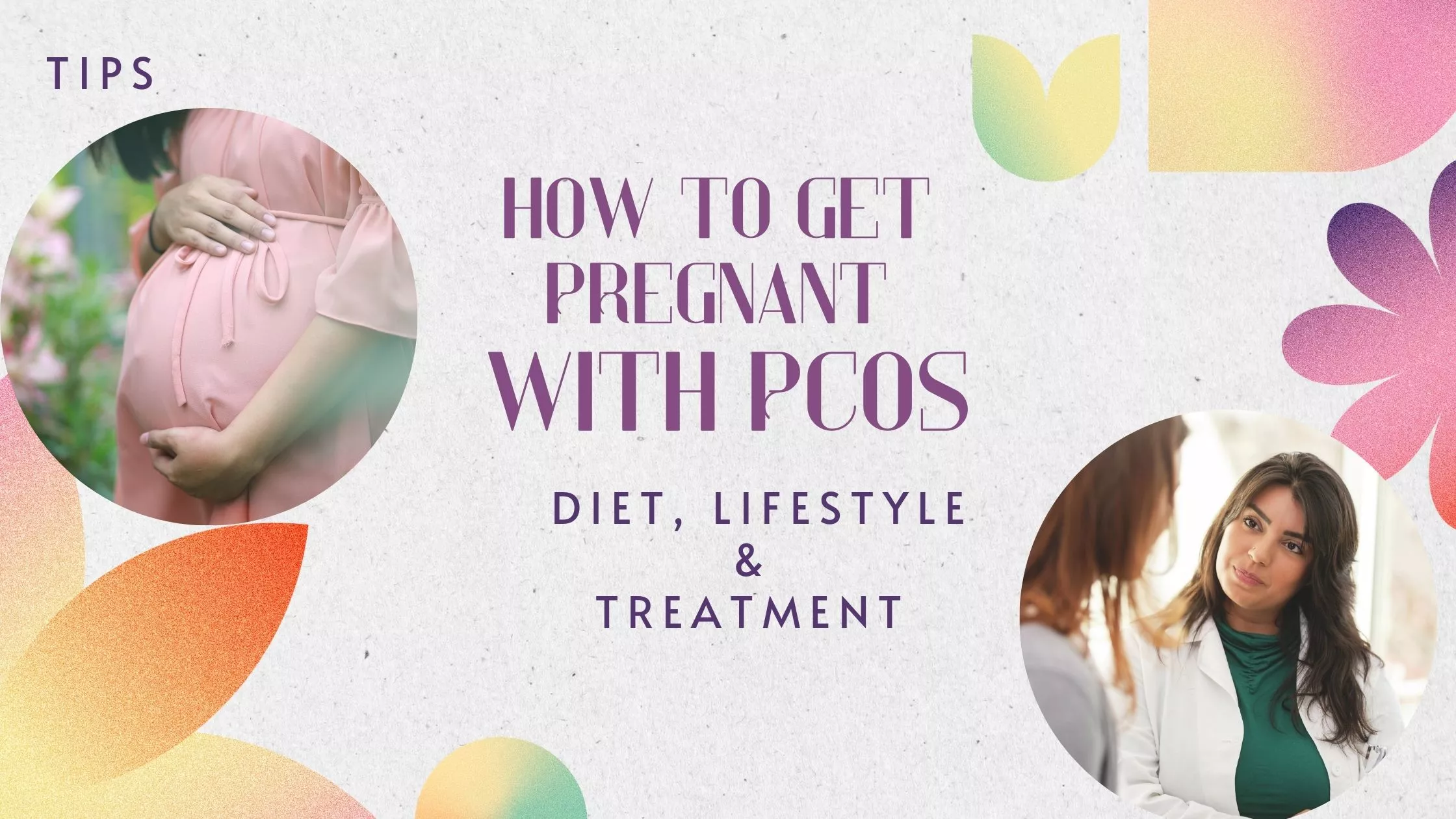Struggling with PCOS and fertility? Learn how diet, lifestyle changes, supplements, and medical treatments can boost your chances of getting pregnant.
Polycystic Ovary Syndrome (PCOS) is one of the most common hormonal conditions affecting women of reproductive age—and it’s also a leading cause of infertility. Irregular ovulation, insulin resistance, and hormonal imbalances can make conceiving feel like an uphill battle.
The good news is that with the right combination of lifestyle changes, medical support, and nutrition strategies, pregnancy with PCOS is achievable. This guide explores the impact of PCOS on reproductive health and offers practical strategies to enhance fertility and support conception.
PCOS: What Is It and How Does It Impact Fertility?
The irregular release of eggs in women with PCOS makes it difficult to pinpoint when fertility is at its peak. Many women with PCOS also have elevated androgens (male hormones) and insulin resistance, both of which interfere with normal reproductive function.
These factors often lead to longer cycles, missed periods, and difficulty conceiving naturally. However, targeted strategies such as a PCOS-focused diet and medical treatments can help overcome these barriers.
How to Get Pregnant with PCOS: Lifestyle Strategies That Work
Before considering fertility treatments, lifestyle interventions can significantly improve fertility. The following strategies may help boost fertility naturally:
1. Follow a PCOS Diet for Fertility
A low-glycemic index (GI) diet helps stabilize blood sugar, reduce insulin resistance, and support regular ovulation.
What to eat for PCOS and fertility:
- Whole grains: quinoa, oats, brown rice
- Lean protein: chicken, fish, legumes, tofu
- Healthy fats: avocado, nuts, olive oil
- High-fiber vegetables: spinach, kale, broccoli
- Low-sugar fruits: berries, apples, pears
This approach balances hormones while also supporting long-term metabolic health.
2. Focus on Healthy Weight Management
Even a modest weight loss of 5–10% can improve hormone levels and restore regular menstrual cycles. The goal isn’t crash dieting but creating a sustainable lifestyle that supports fertility.
3. Exercise to Support Ovulation
Regular physical activity improves insulin sensitivity and encourages ovulation.Walk, swim, cycle, or strengthen your muscles for 150 minutes per week. Some women with PCOS also find success with short high-intensity workouts.
4. Manage Stress and Sleep
Stress hormones like cortisol can worsen ovulation issues. Engaging in calming activities like yoga, mindfulness meditation, or controlled breathing techniques can support hormonal equilibrium and reduce stress levels. Consistent, high-quality sleep (7–9 hours per night) also plays a big role in fertility.
5. Consider Fertility Supplements for PCOS
Supplements can complement diet and lifestyle changes. Always consult a healthcare provider before starting, but commonly recommended ones include:
- Inositol – improves insulin sensitivity and promotes ovulation
- Folic acid plays a vital role in supporting fertility and preparing the body for a healthy pregnancy
- Omega-3 fatty acids – These healthy fats may help balance hormones and reduce inflammation, potentially supporting reproductive health in PCOS.
- Vitamin D – Many women with PCOS are low in vitamin D, which can affect reproductive health, so supplementation may be helpful.
Fertility Treatments for PCOS: Medical Options
If lifestyle interventions are not sufficient, medical treatments can further assist with ovulation and improve pregnancy results.
If lifestyle changes alone aren’t enough, medical treatments are available to help regulate ovulation and improve fertility outcomes. Depending on your individual situation, doctors may prescribe oral medications to stimulate ovulation, use insulin-sensitizing therapies to improve hormonal balance, or recommend advanced options such as hormone injections or assisted reproductive techniques. These approaches are tailored to each woman’s needs and require close medical supervision to ensure safety and effectiveness.
A fertility specialist can guide you in choosing the right option for your unique needs.
Why a PCOS Nutritionist or Dietitian Can Help
Creating a PCOS fertility diet plan can be overwhelming on your own. A registered dietitian specializing in PCOS can design a plan that addresses insulin resistance, weight management, and nutrient balance—while also supporting your fertility goals.
Personalized nutrition guidance eliminates the guesswork from food choices, helping you stay consistent.
Emotional Well-Being on the Fertility Journey
Trying to conceive with PCOS is not just a physical challenge—it can be emotionally draining. Many females experience frustration, anxiety, or isolation. Seeking support through counseling, support groups, or community networks can provide encouragement and resilience along the way.
Keep in mind that you are on a unique journey, and that you do not have to walk it alone.
Key Takeaways: Improving Fertility with PCOS
• Lifestyle strategies like a low-GI diet, weight management, exercise, and stress reduction improve fertility outcomes.
• Supplements such as inositol, omega-3s, and vitamin D may support reproductive health.
• PCOS impacts fertility primarily by disturbing normal hormone balance and preventing regular ovulation.
• Fertility treatments—from oral medications to IVF—are effective options when lifestyle changes aren’t enough.
• Guidance from a PCOS dietitian can personalize your approach and boost results.
Final Word
While PCOS may make conception more challenging, it does not mean pregnancy is out of reach. With the right mix of nutrition, lifestyle changes, medical care, and emotional support, many women with PCOS successfully achieve pregnancy. Consistency and perseverance matter—believe in your journey and know that results will follow.









